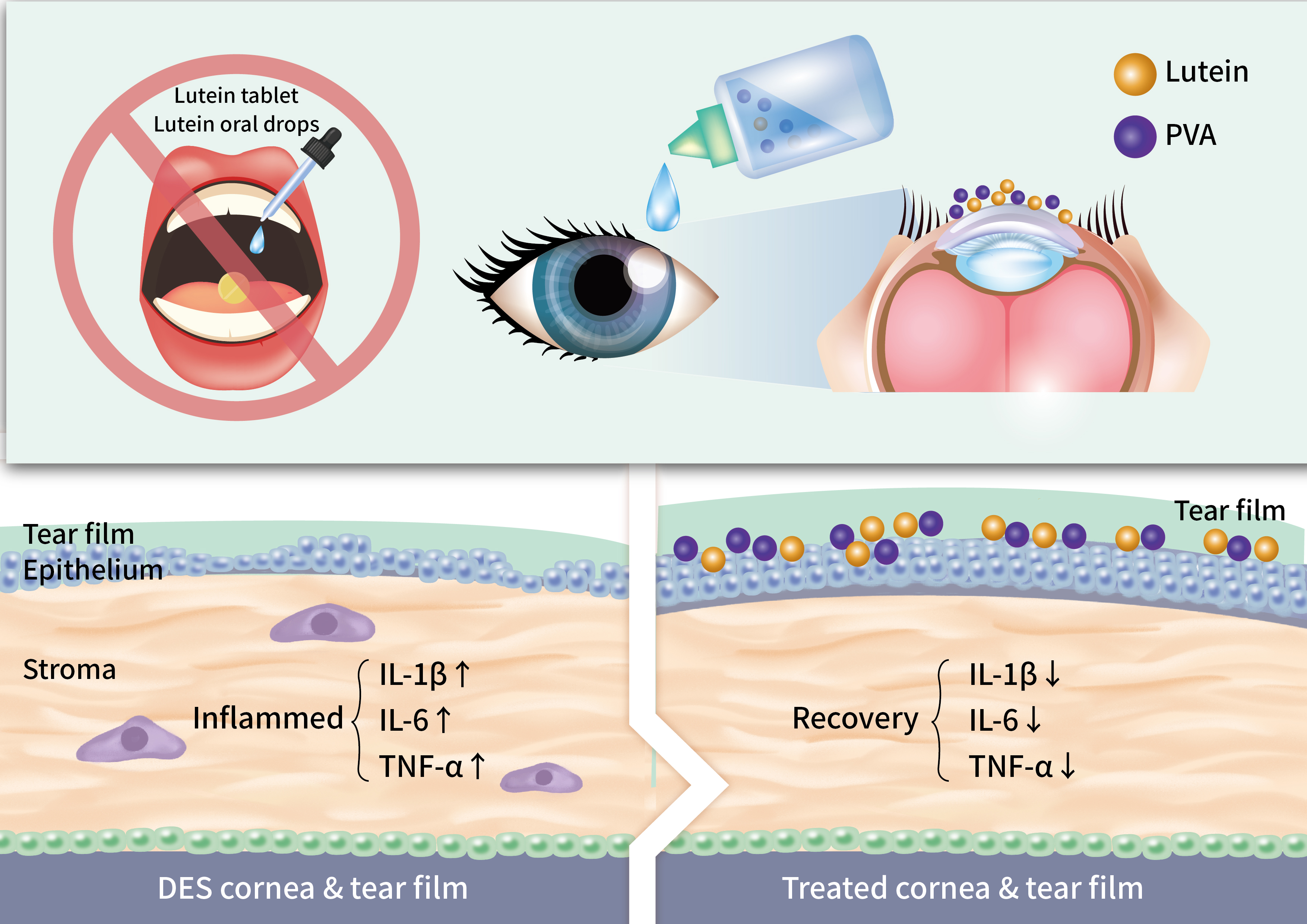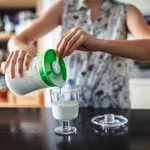Your eyes require a mix of nutrients to function at their best. One important compound is lutein, a carotenoid with anti-inflammatory effects. Studies indicate it may help with several eye-related issues.
What is lutein?
Lutein belongs to the carotenoid group of antioxidants. Carotenoids are plant-derived phytonutrients present in the cells of many plants.
These pigments give many fruits and vegetables their vivid colors — the reds, oranges, and yellows you commonly see.
While these pigments are vital for plant wellbeing, they also offer health advantages to people who eat foods rich in lutein.
Zeaxanthin is another noteworthy carotenoid that supports eye health.
Lutein and zeaxanthin are the only dietary carotenoids located in the retina. They are mostly concentrated in the macula region at the back of the eye, which is crucial for clear vision. For this reason, these two carotenoids are often called macular pigments.

What are the eye health benefits of lutein?
As potent antioxidants, lutein and zeaxanthin may protect the body — particularly the eyes — in various ways. Concerning ocular health, research indicates these nutrients may help to:
- reduce inflammation
- combat free radicals and oxidative damage
- improve visual acuity
- enhance contrast sensitivity
- lessen glare-related vision problems
- shield eye tissues from sun-induced harm
- decrease cell loss and death linked to eye diseases
- protect eyes from damaging blue light
- support conversion of light into electrical signals in the retina and aid transmission of those signals to the visual cortex
- offer protection against nearsightedness (myopia)
- help shield preterm infants from retinopathy of prematurity
Lutein and eye conditions
Beyond the benefits listed above, evidence suggests lutein and zeaxanthin may be helpful for several specific eye disorders:
Age-related macular degeneration (AMD)
In many developed nations, AMD is the top cause of blindness and irreversible vision loss. According to research, lutein and zeaxanthin may help guard against progression to late-stage AMD and subsequent blindness. For more on lutein and zeaxanthin specifically, see lutein and zeaxanthin.
Diabetic retinopathy
A portion of people with diabetes will at some point develop diabetic retinopathy. Although study in this area is limited, a 2019 mouse study suggests lutein may lower oxidative stress markers that contribute to eye damage and vision decline.
Cataracts
Cataracts are cloudy areas that can form in the lens of the eye. A 2020 review found that diets low in lutein and zeaxanthin may be associated with a higher likelihood of developing cataracts.
Dry eye disease
Dry eye disease (also called dry eye syndrome) happens when your eyes do not produce enough tears to stay properly lubricated. Symptoms include redness, itching, burning, temporary blurred vision, and a gritty sensation in the eyes.
Evidence suggests lutein may help alleviate some of these symptoms. For practical guidance on managing dry eye, including makeup considerations, see dry eye eye makeup and dry eyes.
How much lutein do you need?
There is no official recommended dietary intake for lutein, but it is generally regarded as safe, even at higher intakes. The U.S. Food and Drug Administration (FDA) classifies it as Generally Recognized as Safe (GRAS).
It’s estimated that many Americans consume only about 1 to 2 milligrams (mg) of lutein per day. However, research suggests a greater intake may be necessary to lower the risk of AMD.
A large study found that a daily dose of 10 mg of lutein plus 2 mg of zeaxanthin effectively reduced progression to advanced AMD.
This trial included over 4,200 participants followed for 5 years. The dosage produced no adverse health outcomes aside from mild skin yellowing in some individuals.
Earlier research also indicates that daily intake up to 20 mg of lutein appears to be safe.
What foods are good sources of lutein?
Many foods supply useful amounts of lutein. The richest dietary sources are leafy green vegetables, such as:
- kale
- spinach
- broccoli
- lettuce
- parsley
- basil
- leeks
- peas
Lutein is also present in other foods, including:
- egg yolks
- red bell pepper
- corn
- durum wheat
- einkorn wheat
- pistachios
Your body absorbs lutein more efficiently when it’s eaten with foods that contain fat, because low-density lipoproteins are the primary carriers for lutein in the bloodstream.
While dietary intake is generally the best way to obtain lutein, you can also increase your levels with supplements. Lutein supplements are commonly derived from marigold flowers and blended with oils, though synthetic forms exist as well.
What other nutrients may benefit your eye health?
Several nutrients work alongside lutein (or independently) to promote eye health. These include:
- Vitamin C: A water-soluble antioxidant that helps regenerate other antioxidants like vitamin E. It combats free radicals and supports the health of the eye’s blood vessels and connective tissues.
- Vitamin E: A fat-soluble antioxidant that collaborates with lutein to guard retinal cells against oxidative damage.
- Zinc: An essential mineral your body cannot produce or store. Zinc helps transport vitamin A from the liver to the retina to produce melanin, a protective pigment in the eyes.
- Essential fatty acids: The retina contains high levels of docosahexaenoic acid (DHA), an omega-3 fatty acid. Although DHA can’t reverse existing retinal damage, it may help preserve vision and ease dry eye and eyelid inflammation.
The takeaway
Lutein is a plant-produced carotenoid. High levels of lutein and the related phytonutrient zeaxanthin are concentrated in the macula of the eye, a region vital for clear vision.
Thanks to its antioxidant potency, lutein may reduce ocular inflammation, neutralize free radicals, lower oxidative stress, and sharpen vision. Studies also indicate potential benefits for various eye disorders, including AMD.
Although there is no official recommended daily allowance for lutein, it is generally safe at substantial doses. Large trials using 10 mg daily reported no harmful effects.
Many green vegetables are excellent sources of lutein, and supplements are available if needed. Consult with a healthcare professional to determine the most appropriate lutein dose for you.
























Leave a Reply
You must be logged in to post a comment.